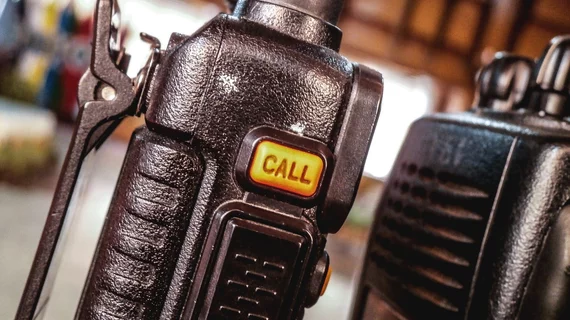Radiologist spearheads pilot allowing COVID patients to talk with relatives via walkie-talkie
A New York interventional radiologist has helped spearhead a new pilot program that allows COVID-19 patients to connect with their relatives via walkie-talkie.
Marc Schiffman, MD, and OB/GYN colleague Tamatha Fenster, MD, both with Weill Cornell Medicine, came up with the idea after finding that video chats were too depressing for families and time-consuming for nurses. They landed on two-way radios targeted toward kids, and have found early success with the experiment, Fast Company reported recently.
“It’s funny because initially we were talking about all these sophisticated walkie-talkie things and then we come upon this children’s device,” Fenster told the news site. “The simplicity of it was actually one of the best things, because if you did have someone who had Alzheimer’s or…had just woken up and was very weak, there’s no thought involved. It’s just one button that they have to push.”
Schiffman first gave the walkie-talkies to a few patients back in April and it proved to be a hit. The experiment has now grown int a new hospital program called the VoiceLove Project that is connecting patients in all sorts of circumstances with their families. It has now spread across 10 care units at New York Presbyterian, reaching dozens of patients.
Read more about the program from Fast Company below.

